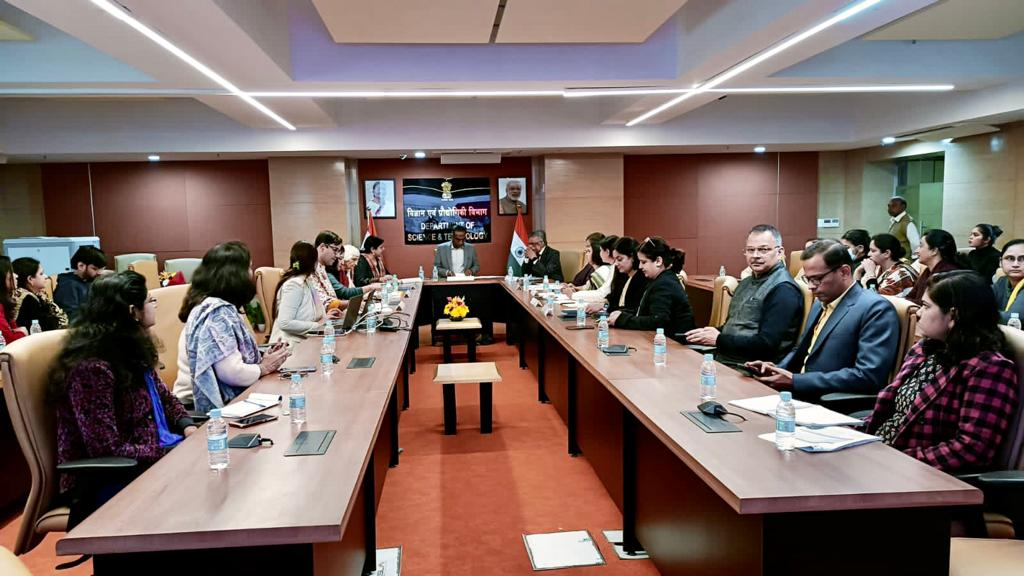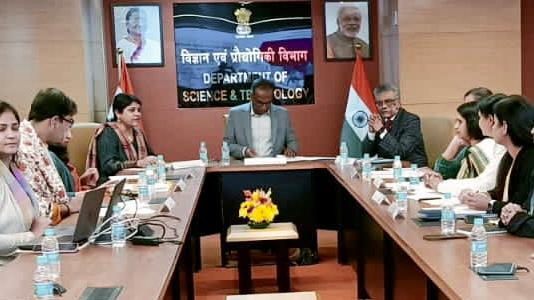Secretary Department of Science and Technology (DST), Dr. Srivari Chandrasekhar, underlined the need for women in leadership positions to bring about change in workplace environment and make it comfortable for women, at a sensitization programme on Sexual Harassment Act.
“At DST, we have tried to ensure a balanced representation of genders among the workforce. Besides, a large number of Divisional heads are women. This has been possible because of the confidence that the Ministry has given to women to work in a secured environment that would help them maintain an excellent work-life balance,” Dr. Chandrasekhar said at the Awareness and Sensitization programme on Sexual Harassment Act and gender parity in workplaces organised by the DST on December 6th, 2022.

Secretary SERB and Senior Advisor DST, Dr. Akhilesh Gupta, said that sexual harassment is a societal issue and stressed on creating an environment at the workplace so that victims have the confidence to come out with problems they are facing and the cases do not get underreported.
“At DST, 41 out of 97 scientists are women, and 11 out of 18 Divisional heads are women. Besides, we also have women at several other crucial positions and have observed the change in the environment this has created,” he added.
Senior experts on the issue, like Professor Himadri Roy from the School of Gender and Development Studies, IGNOU, and Professor Sudha Bhattacharya from Ashoka University, highlighted the need to inform both men and women about what are the provisions of the Sexual Harassment Act, so that women are aware of their rights and men know where to draw the laxmanrekha.

Dr. Nisha Mendiratta, Advisor & Head Kiran & Climate Change Div., DST, said that both men and women can be sensitised on it through orientation on conduct rules and awareness about how complaints can be filed. Senior Scientists like Dr. Geetha Vani Rayasam, Head of CSIR-HRDG, Dr. Anita Gupta, Adviser &Head NEB and TMD –EWO, DST, Dr. Monika Aggarwal, Scientist F, SERB, Dr. Jyoti Sharma Scientist F, DST participated. Dr. Neelima Alam, Scientist F, ICC Chairman, DST, moderated the active deliberations while briefly presenting the background and modalities of the Sexual Harassment of Women at Workplace (Prevention. Prohibition and Redressal) Act, 2013' and the Vishakha Guidelines.
Sexual harassment at a workplace is considered violation of women's right to equality, life, and liberty, creates an insecure and hostile work environment, which discourages women's participation in work, thereby adversely affecting their social and economic empowerment and the goal of inclusive growth. With this idea, the legislature formulated the Sexual Harassment of Women at Workplace (Prevention, Prohibition and Redressal) Act 2013. The Sexual Harassment of Women at Workplace (Prevention. Prohibition and Redressal) Act, 2013' which has been notified on 9th December 2013 to provide a safe and secure environment to women at the workplace.
The Act upholds women's fundamental right to equality as guaranteed under Articles 14 and 15 of the Indian Constitution, right to live with dignity under Article 21, and right to practice any profession or to carry on any occupation, trade, or business which includes right to a safe and secure working environment free from all forms of violence and harassment, as provided under Article 19 (1) (g) of the Constitution of India.
The panel deliberated on measures for further strengthening the implementation of the Sexual Harassment Act and its provisions for ensuring secure and conducive ecosystem in the workplace and provided recommendations for the same.






























